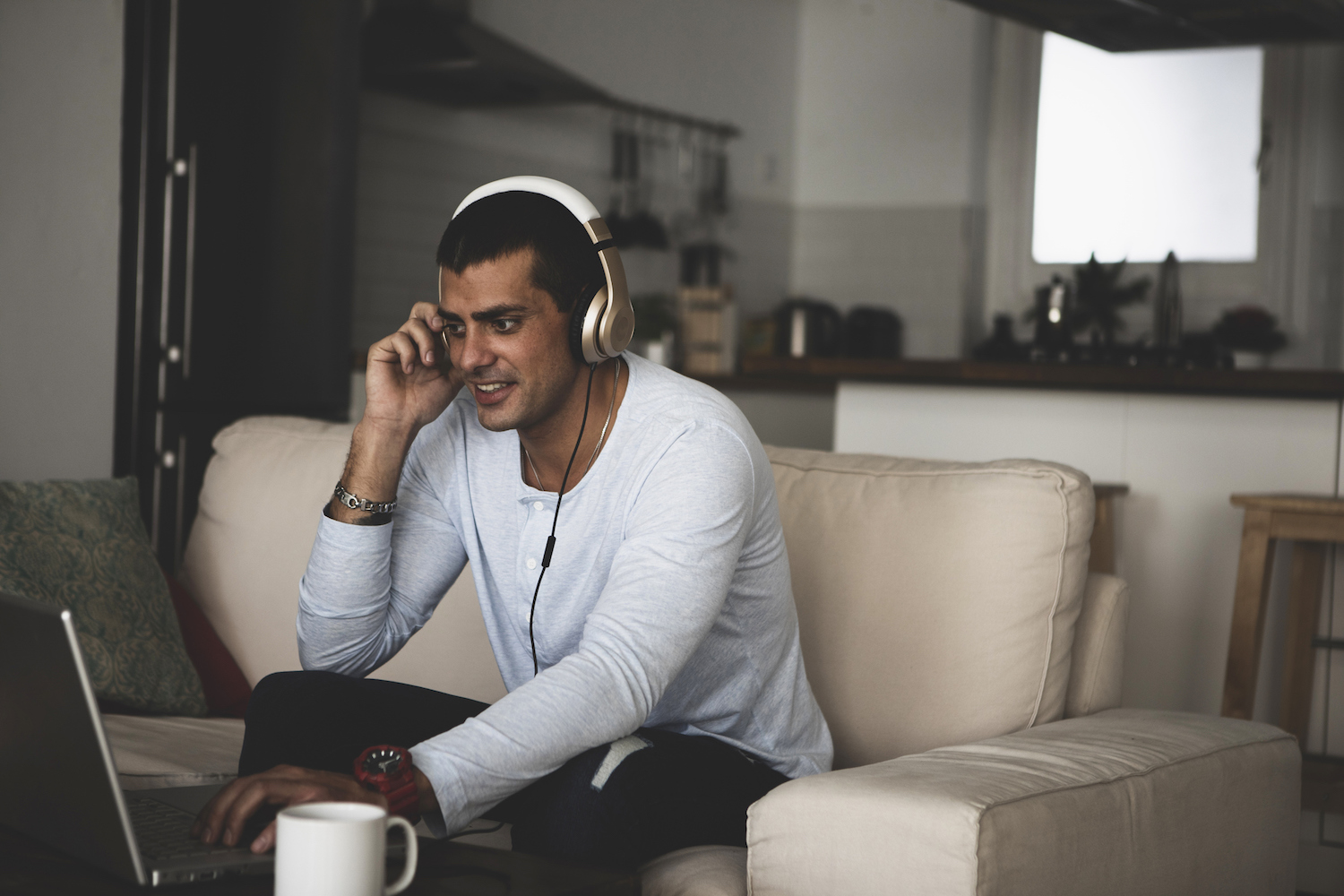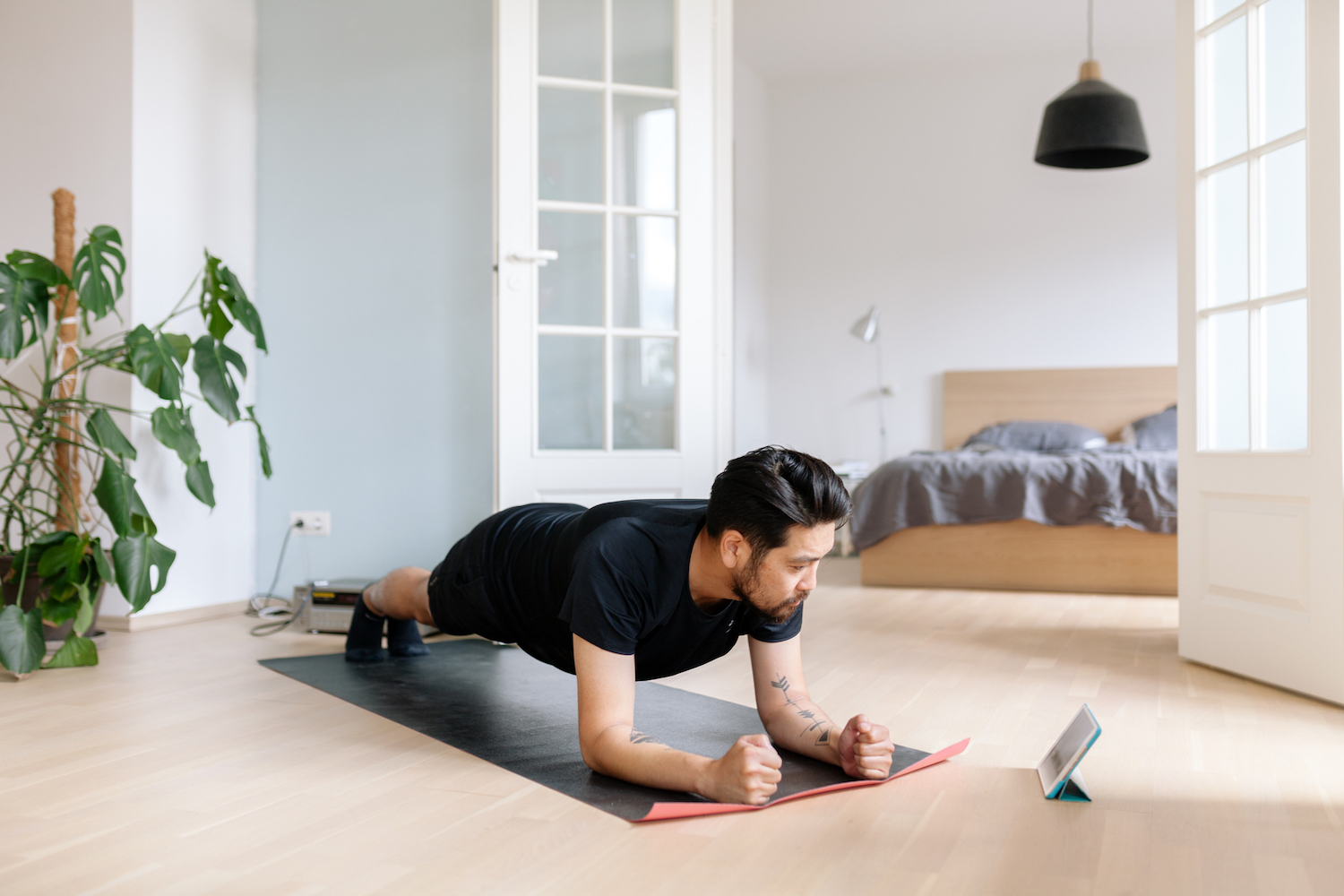
“A sense of disconnection from others has a large impact on our mental health, as we look to belonging and connectedness to feel safe and secure,” Lysn psychologist Nancy Sokarno told Men’s Health. “We may have feelings of hopelessness or paranoia during this time and some of us may not have familial connections in our self-isolation environment.”
Throw in the stress of a global pandemic and rising unemployment and it’s clearly more critical than ever to prioritise the management of our mental health.
“Anxious and depressive symptoms may be exacerbated at this time as we are feeling helpless and out of control of our external environment,” Sokarno says.
That’s why we spoke to a pro about the dos and don’ts of supporting your mental health while self isolating.
DO
1. Stick to a routine
Whether you’re working from home or out of employment, adjust to your new normal and structure your day around routine.
Sokarno says this will help give you a “sense of productivity and purposefulness.”
“We know this allows people to feel more guided and motivated to exert energy into positive activities,” she explains.
This could involve a morning workout, Face-timing some mates at lunch and a mindfulness practice in the evening.
2. Practice mindfulness
If there was ever a time to commit to meditation, now would be it. With every news report and terrifying tid bit from a friend, those struggling with anxiety have a tendency to launch into catastrophising about the future. Sokarno says meditation can help you stay grounded in the present and manage that stress response.
“Meditate and practice mindfulness to engage in the present moment an feel in touch with your ‘now’,” she suggests.
The science is solid when it comes to this mindfulness practice which has been found to reduce anxiety and depression, improve memory and concentration, and find more emotional balance. Research has found that regular meditation can strengthen the parasympathetic nervous system, which in turn decreases our stress response and lowers cortisol. Don’t know where to start? Download an app like Headspace, Calm, Smiling Mind or Insight Timer who can guide you through a simple session.
3. Stay connected
“It should be physical distancing not social distancing,” Sorkano says, “We can still keep in touch without keeping in touch.”
While you’re staying physically apart from one another it’s easy to pick up the phone for a call or hit up the group chat to stay in contact.
“Connect with friends and family through various social media platforms, Facetime a friend or family member and have them in the background while you go about your daily tasks, it can feel like you’re both in the same boat and sharing in similar experiences,” Sokarno says.
4. Get creative
“Engage in your creativity and intelligence to boost arousal in a different way than what stress and anxiety would,” Sokarno says.
This could involve a hobby or DIY project like wood work, art, writing, music or learning a language. If Tik Tok’s your thing, now’s the time to practice a dance routine without prying eyes.
5. Practice self-care
You’ve probably heard your missus mention the term “self-care” mid-face mask but it’s not all beauty treatments and bath time. There are many ways men can show themselves a little extra love whether it’s reading a good book, learning a new skill or a bit of personal grooming.
“Self care routines are important in this time, although you aren’t going anywhere, you still want to feel good about yourself!” Sokarno says.
But a clay mask will do your skin wonders…
6. Keep moving
A landmark study led by the Black Dog Institute found that small amounts of exercise, regardless of intensity, can help prevent future depression. Published in the American Journal of Psychiatry, the largest and most extensive study of its kind found that even one hour of working out each week – whether it’s an easy walk or a weights session – can improve mental health. And if you’re yet to try yoga, it might be time to get the ancient exercise a crack. Research has found it to modulate stress response systems, helping with anxiety and depression. Although gyms are closed there are plenty of online classes, apps and programs to keep you moving at home. Here are some of our favourites.
RELATED: Is It Still Safe To Go Running Amid COVID-19 Concerns?
DON’T
1. Don’t rely on alcohol or drugs to de-stress
“Individuals may look to detrimental coping mechanisms such as alcohol consumption, drug taking or misusing medicine in times of isolation,” Sokarno says.
Be mindful of your consumption as overdoing it can have a far worse impact on your mental health.
2. Don’t catastrophise
When you catch yourself catastrophising with no justified evidence, challenge those thoughts instead of letting them spiral into the worst case scenarios coronavirus presents. If you’re thinking “all of my loved ones will die from this virus” counter it with facts such as “most people who contract coronavirus make a full recovery”.
3. Don’t overdo the info
Sokarno warns against overloading in information and news, especially when it’s not coming from credible sources. Try checking in on government updates once a day to stay informed and leaving it at that.
4. Don’t forget you have support
It is so important to recognise that you are not alone in feeling overwhelmed and anxious. Chat to your friends and family and reach out to mental health resources if you need help.
If you, or someone you know, is struggling with their mental health, chat to a medical professional and reach out to a support hotline:
Lifeline on 13 11 14
SANE on 1800 187 263
Beyond Blue on 1300 22 4636















